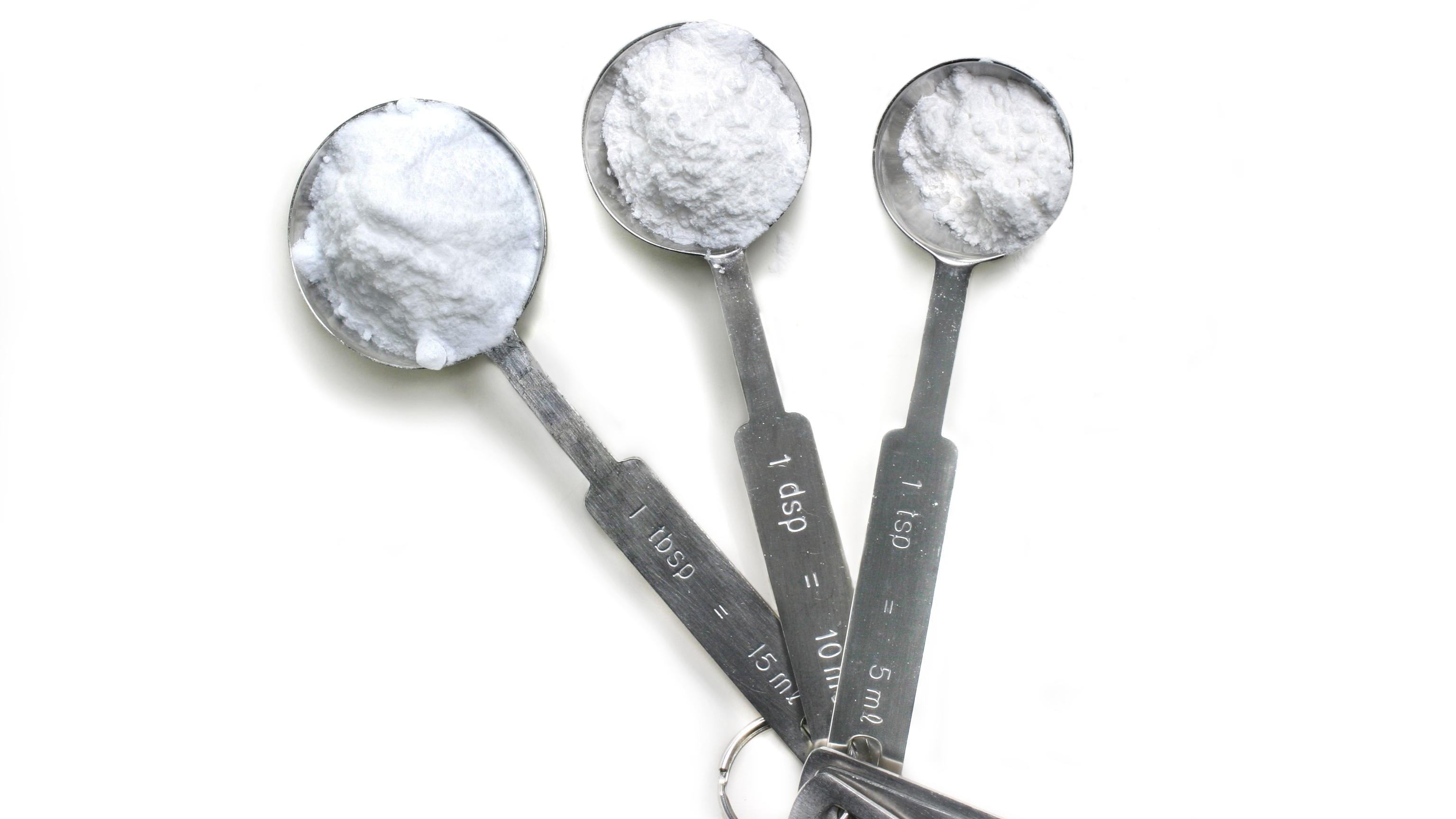What's The Difference Between Baking Soda And Baking Powder?
For a floundering baker like myself, it's not like my larder is stocked with every possible baking accessory and ingredient. Invariably, if a recipe calls baking soda, I will only be able to dig out baking powder, and vice versa. So, I've often pondered: what's the big difference? They sound and look almost exactly the same: Can I substitute one for the other?
Turns out: No. Julianna Westgor, pastry chef at The Dearborn in Chicago, tells me that I'm not alone in my query. "The biggest question I think people have is whether or not they can substitute one for the other. The answer is simply no... you will unfortunately have to go back to the store for the right ingredient!"
But whyyyyyyy, I whine. I found a helpful explanation in the preface of the new cookbook of Great British Bake Off star Martha Collison, Crave: Brilliantly Indulgent Recipes. She describes a bunch of baking basics, "raisers" included:
Baking powder and bicarbonate of soda are the two raising agents I use to make bakes rise or spread out. For any chemistry geeks like me who want to know how they work, here's a brief explanation. A reaction between an acid and a base creates carbon dioxide bubbles, which cause a cake mixture to rise. Bicarbonate of soda is a base, so an acidic ingredient needs to be present in the mixture for it to react with the bubbles. Lemon juice, buttermilk, or cocoa power, among many others, do the trick. Baking powder is a combination of soda (a base) and cream of tartar (an acid), so both the acid and base required for the reaction are already present, and your bake will rise with no further assistance.
Westgor agrees: Baking soda is a base and needs added acids to make it do its job, whereas baking powder is a "complete leavener" and when it's introduced to moisture, it needs no added acid to react. This is why you use baking soda in a cookie like chocolate chip, as it doesn't need to puff up much, and use baking powder for a fluffier cake. That's also why that cake can also be in danger of "falling"; not so with the cookie.
Patricia Kim, pastry chef at Chicago's Gemini, puts it the difference between powder and soda this way: "Both are leavening agents but baking powder has two active ingredients, so it will give it an initial boost and then a secondary one," one when it's mixed in to the batter, and one when it reacts to the heat in the oven.
If it's not sweets but biscuits you're after, there's only one choice, says chef Brandon Frohne—culinary director of Holler & Dash, a chain of biscuit houses in the southern U.S.—who swears by double-acting baking powder (Clabber Girl brand specifically. "You're not going to get a good crumb or flake or lift with baking soda. In fact, sometimes baking soda can lend an undesirable salty flavor."
If you do have baking-soda-laced cookies, though, just make sure to get them in the oven right away: The Joy Of Baking cautions that "Baking soda starts to react and release carbon dioxide gas as soon as it is added to the batter and moistened," so you won't want to let the dough sit out too long. (Unless you're like me and prefer to eat the raw dough. But then you probably don't need the baking soda anyway.)
